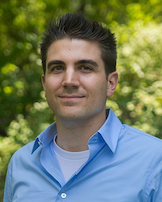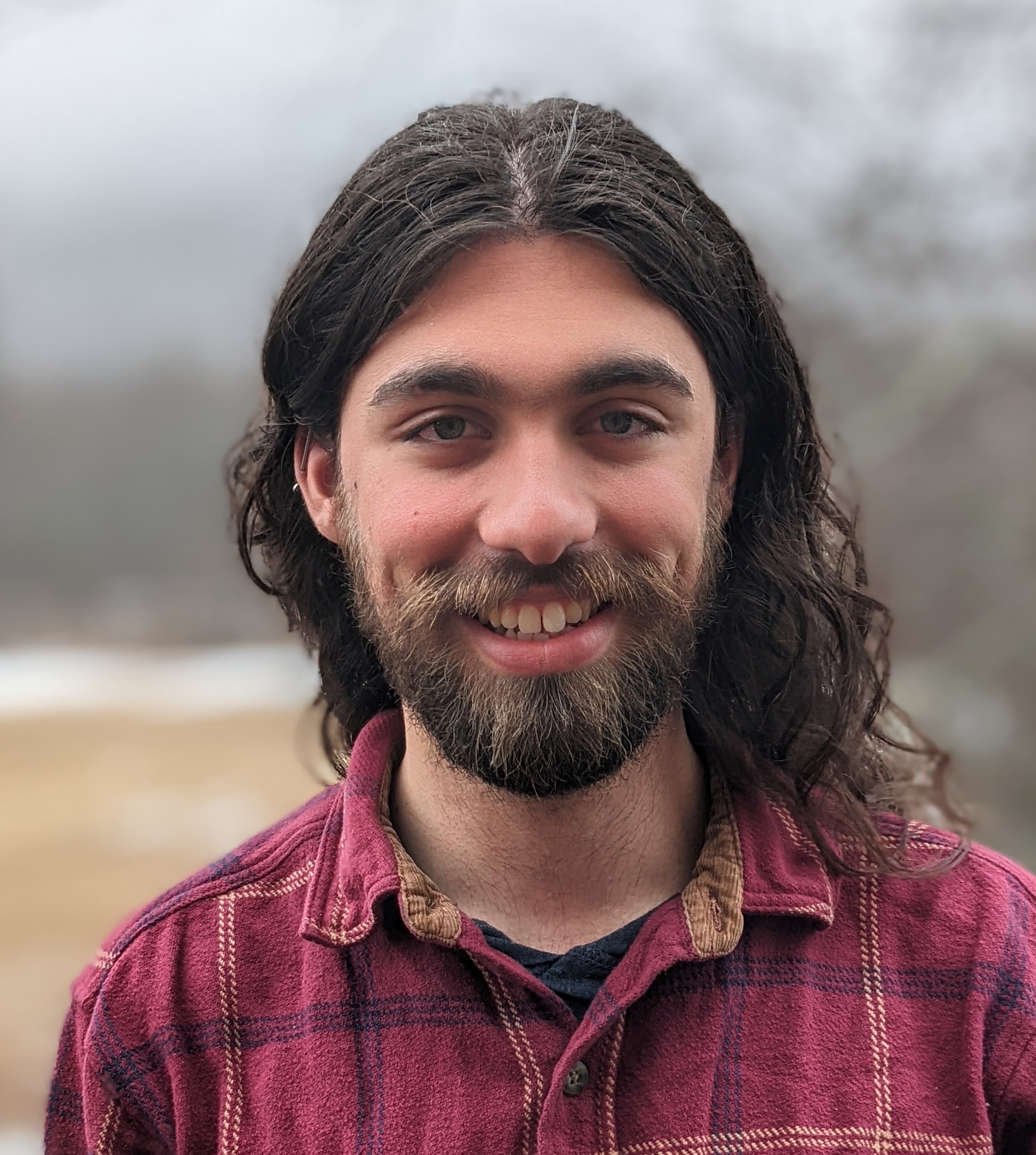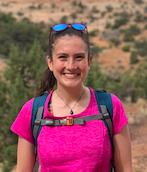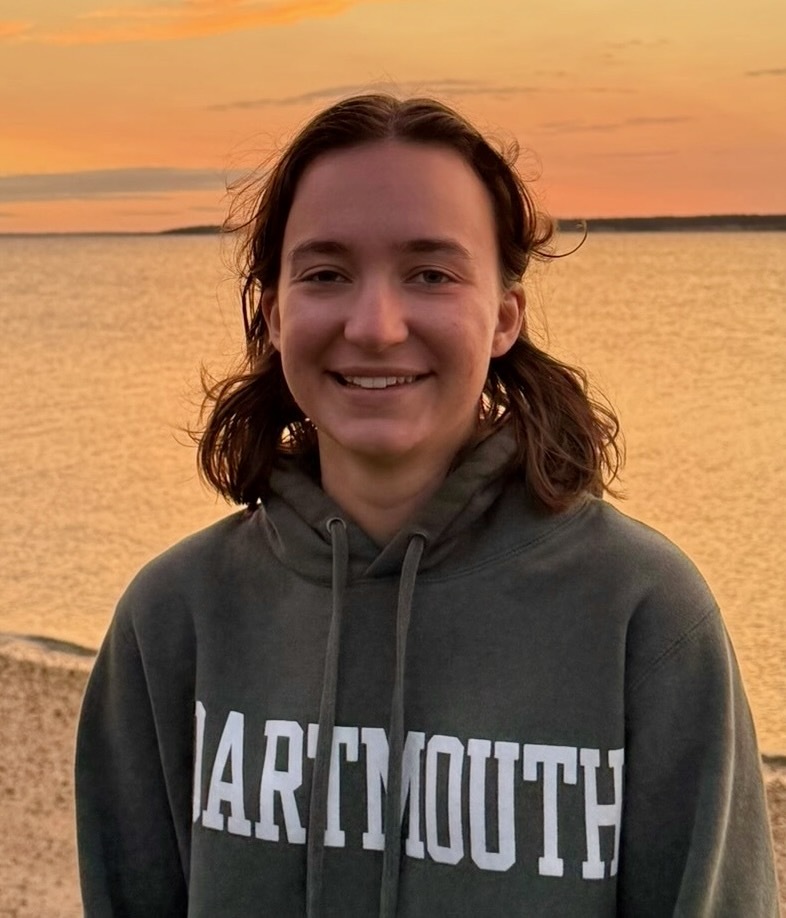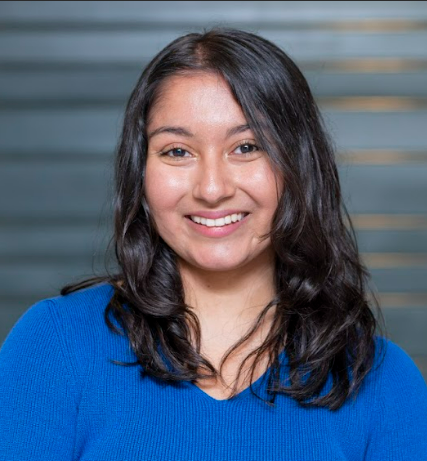Teaching
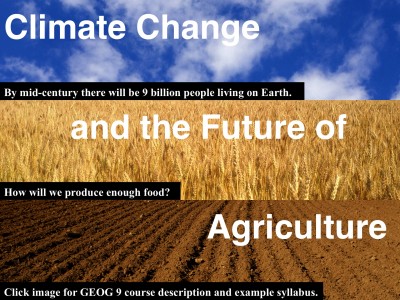
GEOG 19.01:
The global agricultural sector faces the
significant challenge of feeding a
population projected to increase to 9
billion by mid-century under an evolving
climate. This course will explore the
physical geography of agricultural
production systems throughout the
world with an emphasis on the interactions
between crops, climate, water, soils,
and technology.
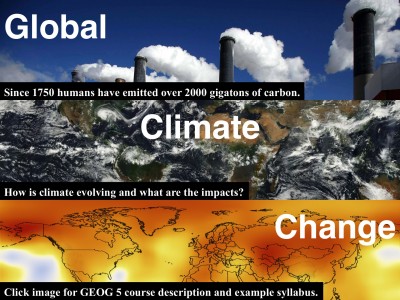
GEOG 15.01:
Climate is a fundamental driver of populations,
economies, and cultures. Over the past century,
humans have been modifying the atmosphere
through the emission of greenhouse gasses. This
course will provide an overview of the Earth’s
climate system and the physical basis, impacts,
and societal dimensions of climate change.
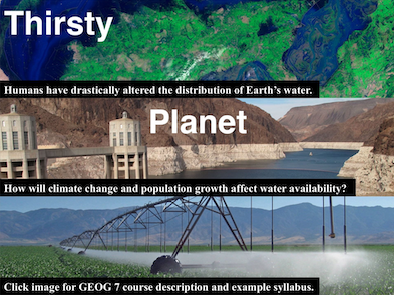 GEOG 7.14:
Humans have radically altered the distribution
of water on Earth. We’ve built cities in deserts
supplied with water from hundreds of miles away,
extracted enough groundwater to alter the Earth’s
gravitational field, and dammed sixty-five percent
of global freshwater flows. This course will
introduce students to the physical geography of
water, survey human interactions with water through
case studies from around the world, and explore how
climate change and population growth will affect future
quality and the availability of water.
GEOG 7.14:
Humans have radically altered the distribution
of water on Earth. We’ve built cities in deserts
supplied with water from hundreds of miles away,
extracted enough groundwater to alter the Earth’s
gravitational field, and dammed sixty-five percent
of global freshwater flows. This course will
introduce students to the physical geography of
water, survey human interactions with water through
case studies from around the world, and explore how
climate change and population growth will affect future
quality and the availability of water.
